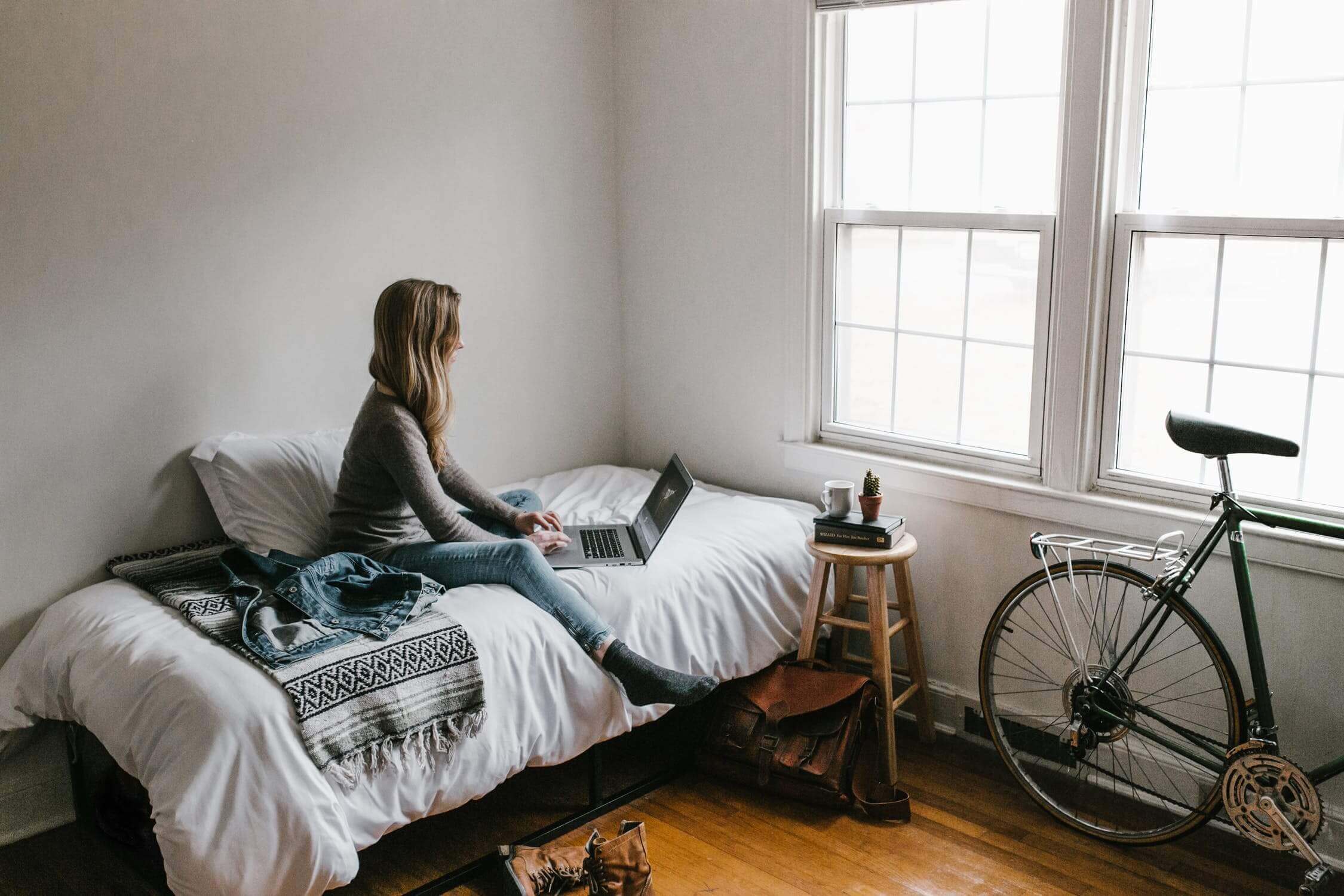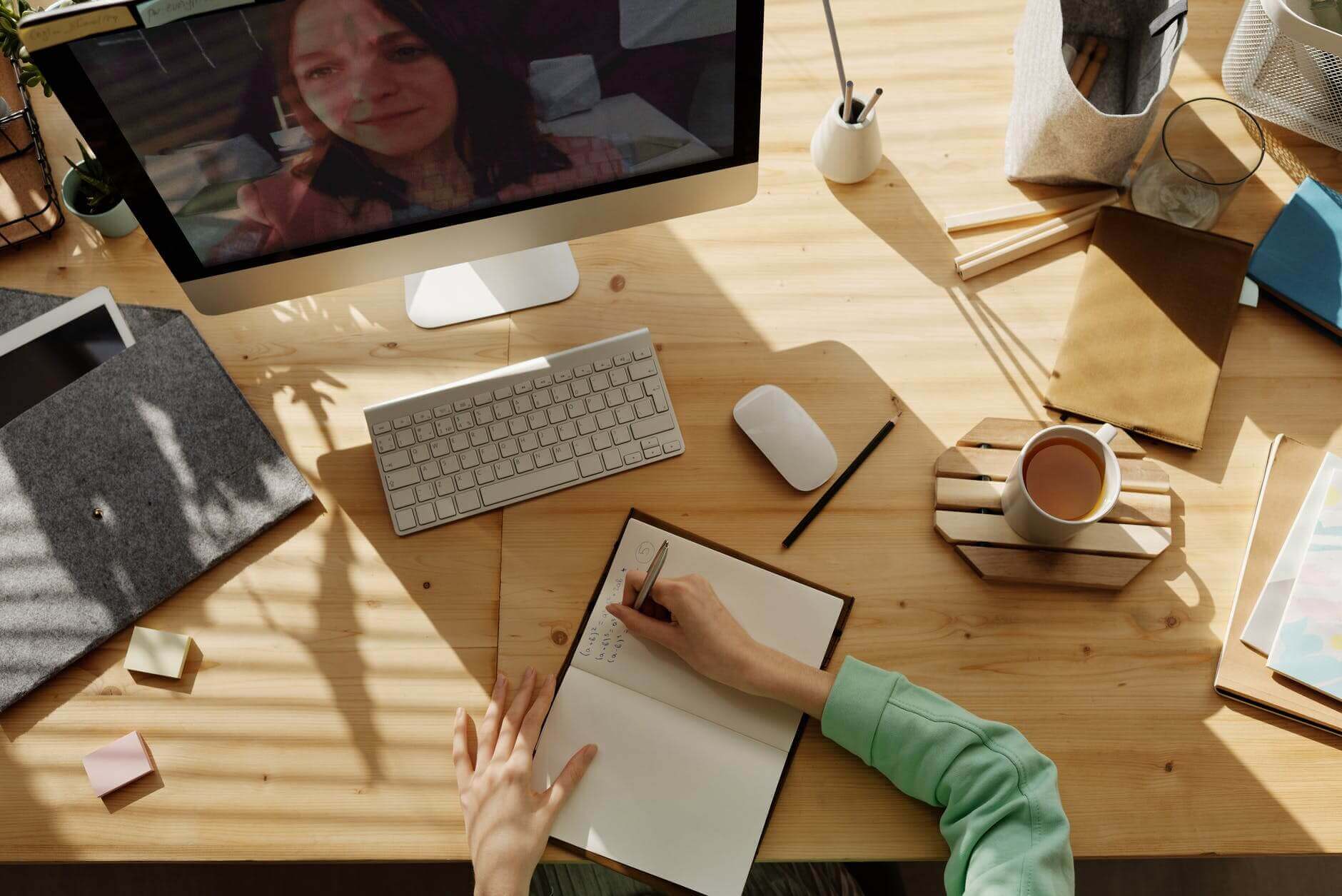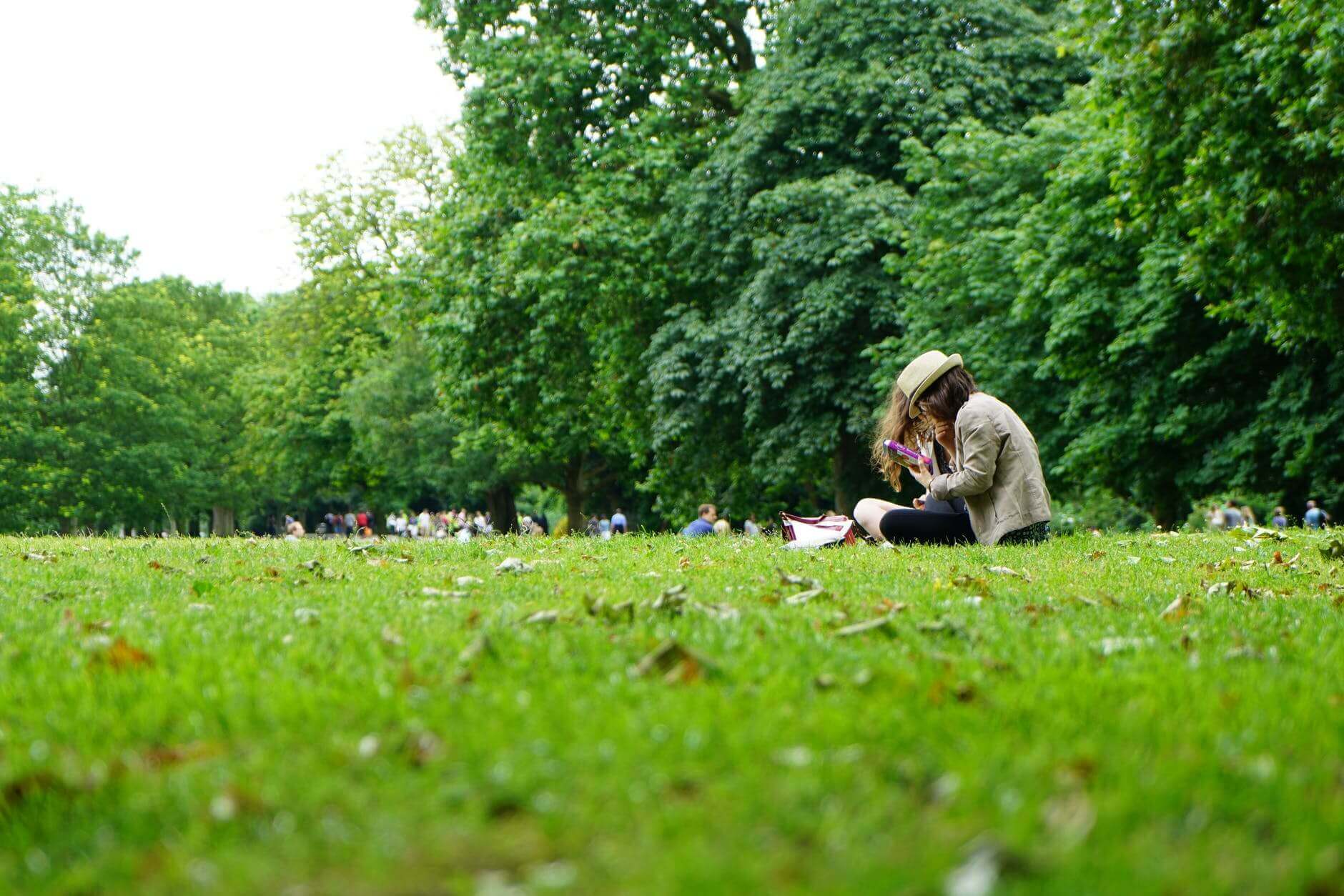June 19, 2020
Remote Thoughts: Battling loneliness

Remote working brings with it an entirely different way of working compared to the standard office environment – and during recent months, it’s very quickly weaved its way into the normal routines of many people around the world.
Due to more of us setting up our work desks at home, we decided to create a mini-series called ‘Remote Thoughts’. Here we will explore some of the topics that working from home during the pandemic has got us all talking about – from staying motivated to ensuring you have the equipment at home to do your job effectively. This week, we’re delving into the issue of loneliness and how it can affect you during this time.
It can be easy to pigeon-hole loneliness as something typically experienced by the older generation. However, while this is certainly still the case, new ONS data showed working-age adults living alone are at greater risk of lockdown loneliness than older people, and those aged 16 to 24 are more than twice as likely to have experienced it than those aged 55 to 69. This is particularly concerning and important to consider now that many adults within these age groups (who are used to regular social interaction with their peers) are now experiencing a unique restriction in face-to-face contact since working from home.
Loneliness in younger generations has been rising increasingly over the past few years. For many Millenials, and particularly those who belong to Gen-Z and have been raised in the digital world, it has become second nature to feel glued to the devices we’re able to carry with us at all times. While social media and our mobile devices can connect us to virtually anyone around the world at the touch of a button, it’s also causing us to physically disconnect from our friends and peers. You only have to think about that one friend at dinner who can’t peel their eyes away from their screen to understand the effect this can have long-term on their mental health. As these small actions become part of our norm, this can begin to add to the sense of loneliness slowly bubbling in our unconscious minds, which threaten to overspill if left for too long.

Humans are naturally social creatures; we thrive off human connection and the relationships we build with others. However, the coronavirus pandemic has thrown many of us into a sudden and unexpected new way of living. As our everyday routines have shifted in such a short space of time, this uncertainty brings with it different anxieties that many will be experiencing.
We know that loneliness is a condition that affects us all from time to time (and it is already beginning to grow in younger generations). However, self-isolation and social distancing is likely to have thrust unforeseen loneliness upon many people whose buzzing social life is beginning to feel like a hazy memory. This shift in routine has affected all areas of our lifestyles, including both our personal and professional lives. For those used to working in the hustle and bustle of an office environment, it can be easy to take the company of your colleagues or chats by the coffee machine for granted – and it may be something you’re beginning to miss as you continue to work from home.
Remote working naturally brings with it many advantages that some workers are truly getting to experience for the first time – most prominently being maintaining a healthier work-life balance. However, with restrictions being put upon our physical interaction with our colleagues, friends and family, this is likely to be adding to the pot of loneliness that is slowly but steadily brewing in your stomach.
So, what can you do to help battle loneliness as you work from home?

Do regular video calls
Before the pandemic, you could probably count the number of people you knew who had heard of Zoom on one hand. Something that initially felt awkward and forced as you jumped on camera with your colleagues, video calls now most likely feel like second-nature; and as time goes on, you may begin to find yourself taking them for granted. Even the weekly video quizzes with your family that became the highlight of our lockdown calendars have most likely dwindled down to a one or two a month.
While video calls are only a minor substitute for face-to-face interaction, maintaining regular communication with your friends and peers will do wonders for your mental well-being. Be sure to regularly check in with your colleagues throughout your working day – even just to ask how they’re feeling. Try setting up a daily video call with your team each morning and use this time to discuss whatever is on your mind – whether that be a pressing work project or simply a boxset you finished on Netflix the night before. Maintaining these conversations remotely is vital in ensuring your positivity is being looked after. It will also ultimately help you stay more productive and feel a sense of normality and solidarity with your team as you can chat through any worries you may have – especially when you find they are likely to be experiencing the same feelings.

Take breaks outside
With social distancing measures beginning to lift around the globe, you may find that you’re able to meet others outside at a distance, whether it’s to go for a walk, sit in the park or even do a workout together. While ensuring you stay safe and adhere to the guidelines, make the most of this time outdoors to connect with others. Perhaps arrange to meet a friend or colleague on your lunch break, or even go for a walk after you’ve finished work for the day.
Even if you find yourself living in a remote area and unable to easily meet up with others, being outdoors alone is still a fantastic way to clear your mind and help you return to your work with a fresh perspective and sense of motivation. It will also help to give you a sense of purpose within your day, so you avoid dwelling on your negative emotions.

Do some physical activity
Alongside the fitness benefits that exercise can bring, one of the other (sometimes forgotten) benefits is the positive impact it can have on your mental well-being. Studies have shown that physical exercise can help to treat depression, anxiety and stress and so making exercise a part of your routine during lockdown can have a truly positive impact on your mood. It can also help to clear your head while keeping you healthy and motivated throughout the day.
Healthy exercise doesn’t also just have to be those home workouts or intense cardio sessions you would do at the gym. It’s important to find a physical activity that you enjoy doing, so it not only boosts your spirits, but you’re more likely to maintain it as part of your daily routine. So whether it’s walking, dancing, yoga or lifting weights, find what works for you and weave it into your day. Try doing live workouts online with a friend, or team up with someone to go for a run outside to help curb your loneliness when it starts to flare.

Monitor your digital consumption
As touched on above, our digital devices can impact our loneliness on a larger scale than we sometimes give them credit for. With research showing that we spend an average of 2 hours and 23 minutes per day on social media, it can be all-too-easy to get lost down an endless spiral of scrolling your through your Instagram feed or reading gossip on Twitter.
While social media is the catalyst keeping us all connected, be sure to monitor the amount of time you’re spending attached to your devices. Our devices are wonderful ways for us to video call our friends, or chat online while watching a movie. However, it’s important to recognize when your online activity is helping or hindering your feelings of loneliness, so you can identify the causes and then put a limit on your consumption.
Are you working from home and looking for a tool to help you stay connected with your team while staying on top of your to-do list? Ayoa is a cloud-based tool that acts as your virtual office, allowing teams around the world to collaborate, work and chat seamlessly together in one workspace. Discover more here and sign up for FREE today.
